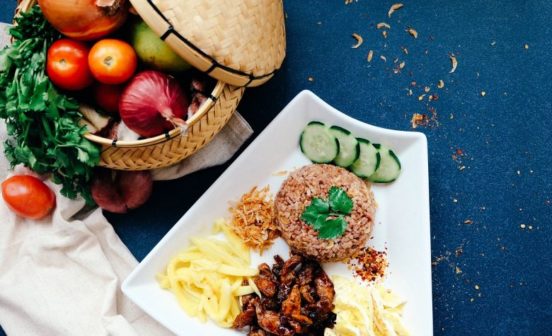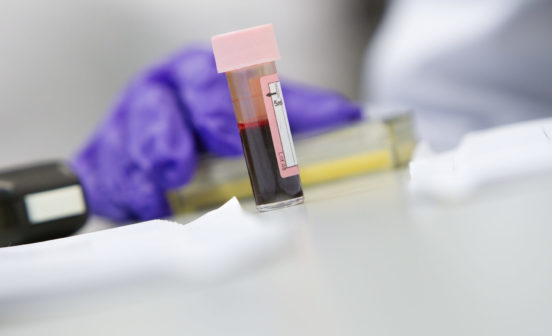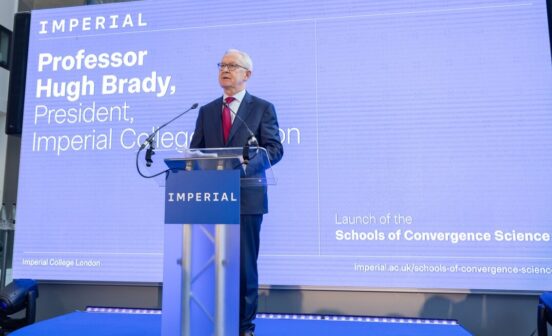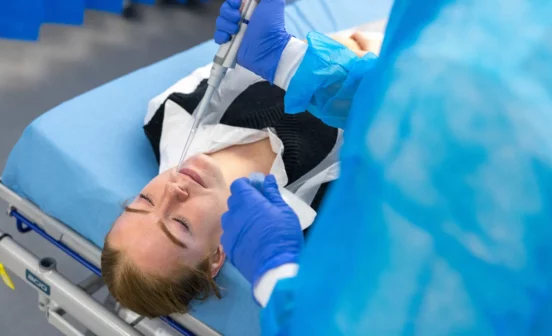Therapeutic Q&A with Dr Kinross about his new book about the importance of gut microbiome
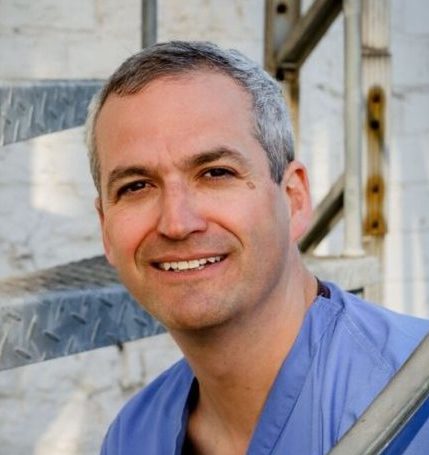
Dr James Kinross a Consultant surgeon specialising in the gut microbiome at Imperial College London and Imperial College Healthcare NHS Trust has published a new book, Dark Matter. the book explains the role of micro-organisms in our bodies and the impact on our health of their imbalance in our system and the world around us.
His research interests include how the gut microbiome causes colorectal (bowel) cancer, how we can influence it to improve our health and the use of artificial intelligence for real-time decision support in the operating theatre. Dr Kinross’ is also an active researcher with interests spanning three NIHR BRC themes- Digestive Diseases, Surgery and Cancer and Infection and AMR.
Corinne Farrell caught up with Dr James Kinross to find out more.
What is a microbiome?
A microbiome refers to all the microscopic organisms within a particular environment and all of the things that they need to sustain themselves. They exist at lots of different scales and we have them all around, on and inside us. So, for example, our planet has a microbiome and we have microbiomes on our skin, in our lungs and in our gut. Our microbiomes have evolved with us and they change and grow with us over our lifetime. They have an important symbiotic role in our health: they need us to survive, but we need them too.
Why is the gut microbiome important?
We have learnt that the gut microbiome is of vital importance to health. it not only helps us digest and absorb our food and metabolise vitamins, minerals and medicines, but it also has a key role to play in our immune system. A large proportion of our immune system is located within the gut because it has to process a huge number of environmental antigens. An antigen is any substance that causes our immune system to produce antibodies against it. That could be pollen, chemicals or viruses. In just one day, the gut will have to deal with more antigens than the rest of the immune system will deal with in an entire lifetime.
Our gut microbiome is responsible for educating our immune systems as we grow and for controlling how those immune systems function later in life, as we age. We are just now starting to understand the role our gut microbiome plays in defining our risk of chronic or non-communicable diseases, such as diabetes, arthritis, allergies and cancer.
How did you become interested in this area?
I first understood what the microbiome was when I started my PhD in 2005 and it became obvious to me that this has to be an important part in the story of human health and happiness. These microbes are there for a reason, they’re not there by accident. This is an evolutionary partnership, and if we’re getting more cancer or chronic disease in the gut, they have to be part of the story. Microbes have been used as therapy and cancer treatment for hundreds of years – but they’ve been ignored by mainstream science. I knew the gut microbiome was important to our health and I wanted to focus my future career on understanding how.
What role does diet play in the gut microbiome?
My general hypothesis is that we are experiencing a fundamental change in the type, number and function of micro-organisms that live within us in the developed world. That has happened over a very short timeframe and the reason for that is not just about diet and food. It’s also about our rapidly changing environment, which we call the exposome, (particularly urbanised environments) and the fact that we are now taking lots of medicines, especially antibiotics. Clearly, diet is a major driver too and in America and Europe, we now eat a kind of globalised, processed, white, gloopy diet which is very low in plant-based fibres and very high in animal fats and refined sugars.
We compared these diets to those in Sub-Saharan Africa where rural communities have very high-fibre, plant-based diets. They eat meat very rarely, and when they do, it is very lean. They exercise a lot and live in social communities, where they farm together, cook together and share plates of food. So, they exchange and share microbes through lots of different routes. As a result, they have a much more diverse and resilient population of gut micro-organisms than we do.
If you change their diet to one that is high in fat and protein but low in fibre, you see dramatic changes in the functions of the microbes that exist within their gut. These changes cause and drive inflammation and we think this increases the risk of cancer and other chronic diseases.
What should we do to protect our gut microbiome?
Our gut microbiome is being badly damaged in our early lives. This not only promotes inflammation and sensitises us to a poor diet, but our microbiomes are less resilient and diverse. That’s why at a population level we’re seeing alarming increases in the risk of colorectal cancer, asthma, allergies, rheumatoid arthritis and other chronic conditions.
The good news is that you can target the microbiome to change these risks. For example, we have found in our research that cancer risk can be reduced very quickly if you de-westernise your diet and move to a high-fibre, plant-based, low-fat, low-protein diet. This very quickly changes the functions of the microbes in your gut and they start producing lots of small molecules called metabolites that protect the gut.
Ideally, we need to nurture our gut microbiome from birth. I think that this is so important, that it should be a given human right. One of the ways to do this is for women to breastfeed if they can and for children to have all their vaccinations – that way, they’re much less likely to need antibiotics. When used correctly, antibiotics save lives, but overuse causes more harm than good. We also need our children to play outside with other children and to have a diverse diet that is high in fibre and low in saturated fats.
Have you made changes in your own life because of what you’ve learnt about our gut microbiome?
Absolutely! I am mainly vegetarian now. I’ve deleted all my food takeaway apps and I cook food from scratch as much as possible. I’m careful about what I buy and knowing where my food comes from. So, if I eat meat, for example, I want to know about its provenance and that no antibiotics were used in its production. I also try to eat more socially and family meal-times are really important for me. When we’re touching and sharing different plates, we are exposed to each other’s microbes. We need that exposure to keep our systems in balance.
I also exercise more and try to keep fit and mobile.
Can you tell me about some of Imperial’s research on the gut microbiome?
We’re trying to engineer the microbiome to improve cancer therapy. I’ve got a great PhD student looking at how bacteria might reduce the adverse side effects of chemotherapy. The chemotherapy agents we use are toxic to all cells, not just cancer cells. We want to see if the microbiome may have a role in protecting normal cells.
We are also running a long-term study to help us understand the evolution of the microbiome in very early life and its importance in influencing your risk of disease later in life. This involves following two cohorts of children from birth and studying how their gut microbiome evolves as they grow up in varying circumstances.
What prompted you to write your book, Dark Matter?
I was keen to bring together all the ongoing work in microbiome science because it creates such a compelling argument for taking it seriously. It’s not just about the gut: it’s about the human microbiome.
It’s also a warning and a call to action for the future. I’m saying that we are currently experiencing an internal climate crisis and we’ve got to change society. We can’t solve our problems through dietary changes alone: we’ve got to address some fundamental underlying challenges to our human and planetary microbiome. We have to come together and reject farming practices and healthcare policies that ultimately lead to the destruction of our human microbiome.
There’s a lot of science in the book to support my hypothesis. It’s for anyone who is interested in how we can improve our health and who wants to understand why we get disease and how to prevent it, so I have tried to make it easy to understand.


